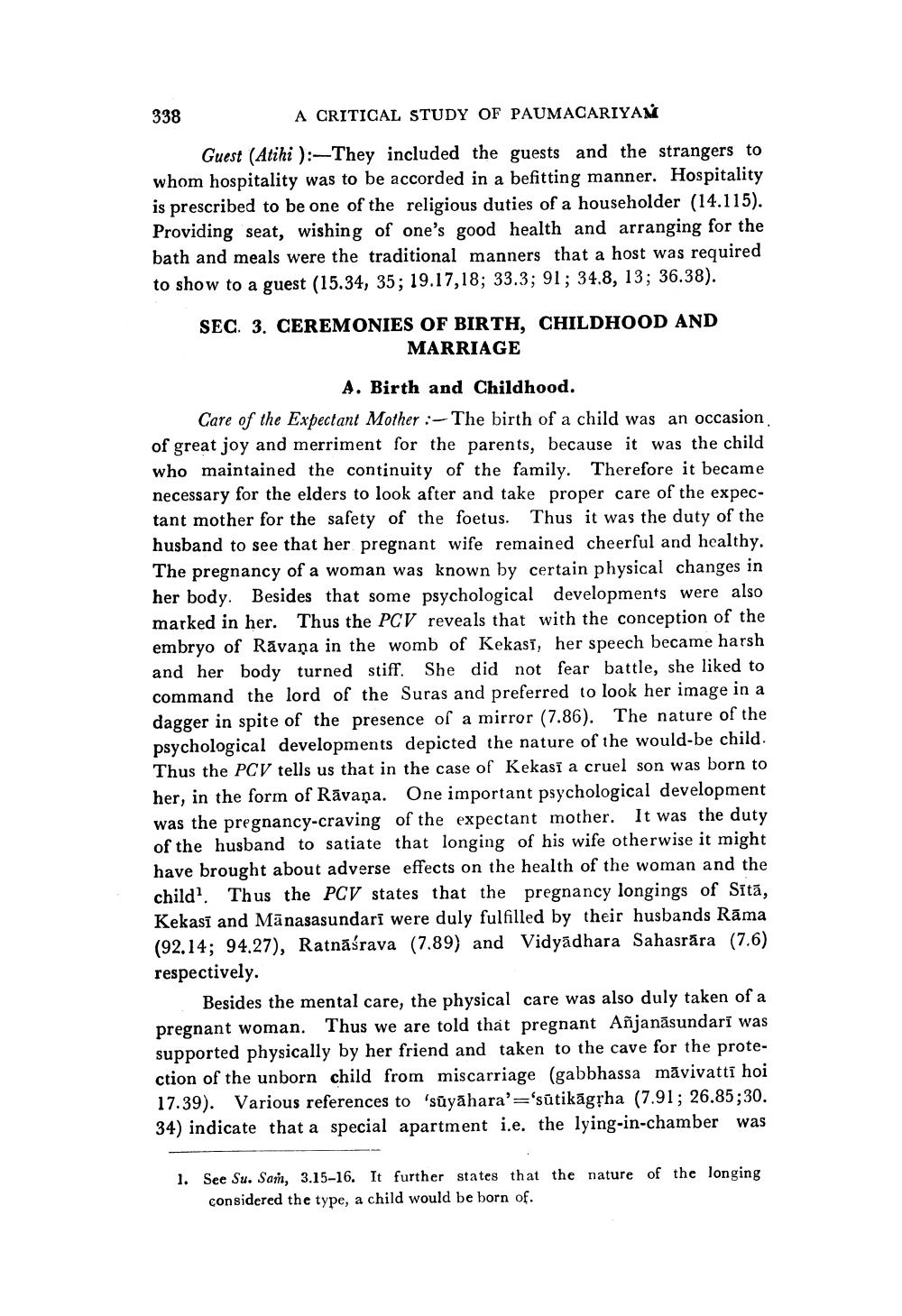________________
338
A CRITICAL STUDY OF PAUMACARIYAN
Guest (Atihi ):-They included the guests and the strangers to whom hospitality was to be accorded in a befitting manner. Hospitality is prescribed to be one of the religious duties of a householder (14.115). Providing seat, wishing of one's good health and arranging for the bath and meals were the traditional manners that a host was required to show to a guest (15.34, 35; 19.17,18; 33.3; 91; 34.8, 13; 36.38).
SEC. 3. CEREMONIES OF BIRTH, CHILDHOOD AND
MARRIAGE
A. Birth and Childhood. Care of the Expectant Mother :- The birth of a child was an occasion of great joy and merriment for the parents, because it was the child who maintained the continuity of the family. Therefore it became necessary for the elders to look after and take proper care of the expectant mother for the safety of the foetus. Thus it was the duty of the husband to see that her pregnant wife remained cheerful and healthy. The pregnancy of a woman was known by certain physical changes in her body. Besides that some psychological developments were also marked in her. Thus the PCV reveals that with the conception of the embryo of Rāvana in the womb of Kekasī, her speech became harsh and her body turned stiff. She did not fear battle, she liked to command the lord of the Suras and preferred to look her image in a dagger in spite of the presence of a mirror (7.86). The nature of the psychological developments depicted the nature of the would-be child. Thus the PCV tells us that in the case of Kekasí a cruel son was born to her, in the form of Rāvana. One important psychological development was the pregnancy-craving of the expectant mother. It was the duty of the husband to satiate that longing of his wife otherwise it might have brought about adverse effects on the health of the woman and the child. Thus the PCV states that the pregnancy longings of Sītā, Kekasī and Mānasasundari were duly fulfilled by their husbands Rāma (92.14; 94.27), Ratnāśrava (7.89) and Vidyādhara Sahasrára (7.6) respectively.
Besides the mental care, the physical care was also duly taken of a pregnant woman. Thus we are told that pregnant Añjanāsundari was supported physically by her friend and taken to the cave for the protection of the unborn child from miscarriage (gabbhassa māvivatti hoi 17.39). Various references to 'sūyahara'='sūtikāgsha (7.91; 26.85;30. 34) indicate that a special apartment i.e. the lying-in-chamber was
1. See Su. San, 3.15-16. It further states that the nature of the longing
considered the type, a child would be born of.




